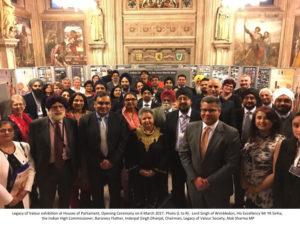Today’s debate about the rights or wrongs of air strikes against ISIS, will be focused on what constitutes a just and proportionate response to ISIS atrocities in Paris and elsewhere. While much has been said and written about criteria that need to be met for a just war, less has been said about imperatives for just and lasting peace.
Syria, like much of the Middle East, is a cauldron of competing rivalries, not only those of Sunni and Shia Muslims but also smaller groups: Allowites, Kurds, Christians and others. While we would all like to see functioning democracies in the region, this is easier said than done. The history of the Middle East, and many other parts of the world shows that majority rule does not always equate to just rule. Majorities insensitive to the rights of minorities, can all too easily morph into tyrannies. What is important is, not so much the process of acquiring power, as the way power is exercised.
I was reminded about this at an event celebrating the birth anniversary of the Maharaja Ranjit Singh, who lived in the 19th century. He ruled over a vast area of northern India, including present day Pakistan. Although the Maharaja gained power through military might, he reached out to all communities winning both love and loyalty.
Totally illiterate, he spent hours as a child in the gurdwara, listening to Sikh teachings on respect for all communities. He was deeply influenced by the Sikh belief that that token respect for other ways of life is not enough, and that for true respect, we should be prepared to put our own rights and freedom on the line, in support of those of others.
The Maharaja kept this teachings close to his heart. There were more Hindu and Muslim Ministers in his government than Sikhs. He also gave generously for the upkeep and development of places of worship of all communities, bringing peace, stability and prosperity into a region that had been subject to factional rivalry, not unlike that seen in the Middle East today.
Yes, this is history from the 19th century, but it contains fundamental truths that we would be wise to learn from. Reaching out to others in this way is not easy, but is possible, and to my mind, essential for true and lasting peace. We should give our full support to any group working in this direction.



